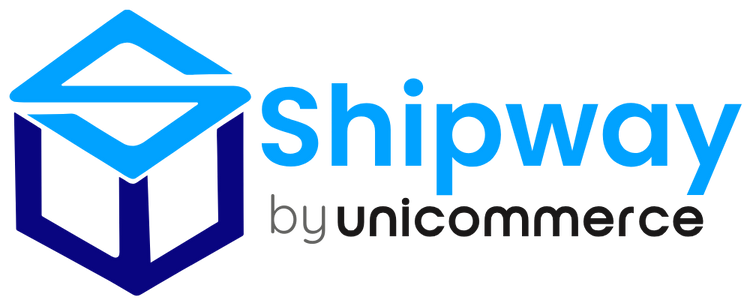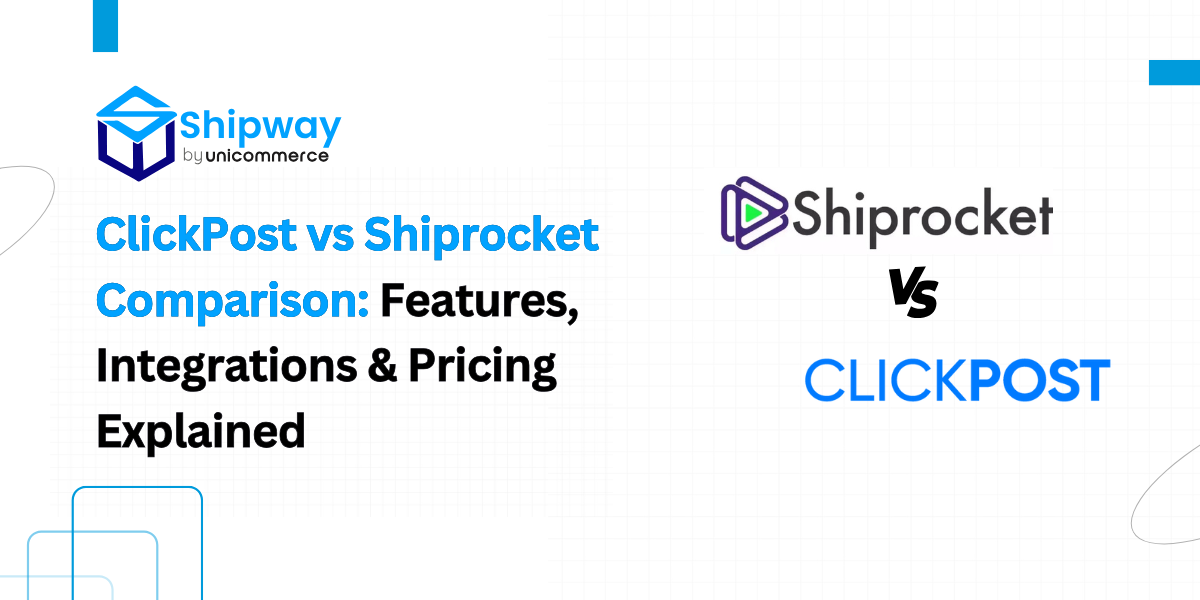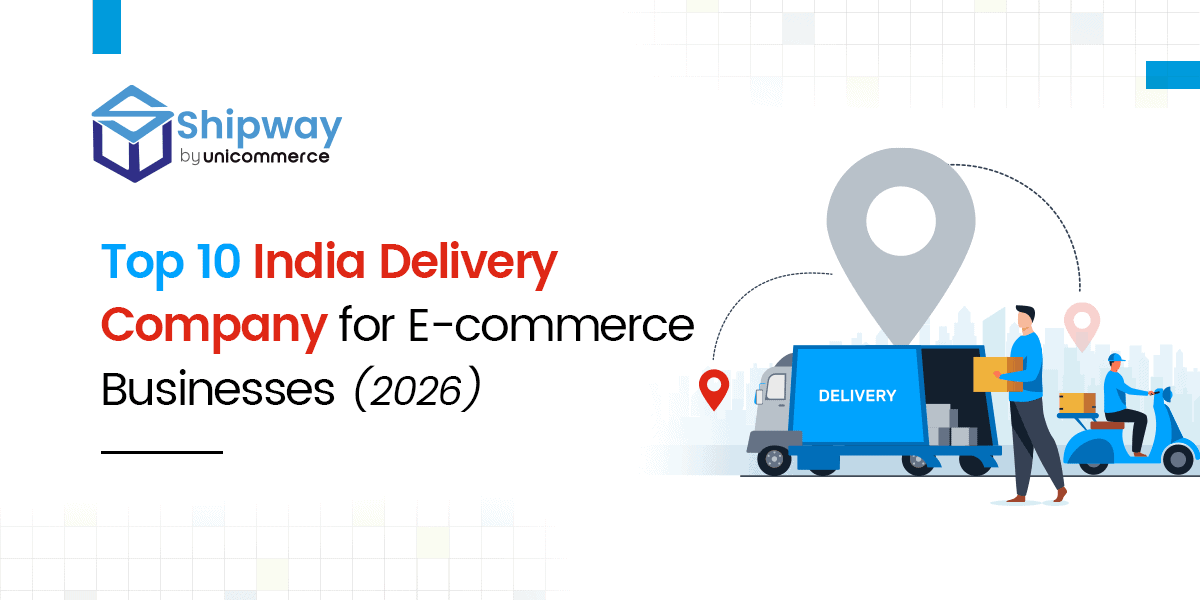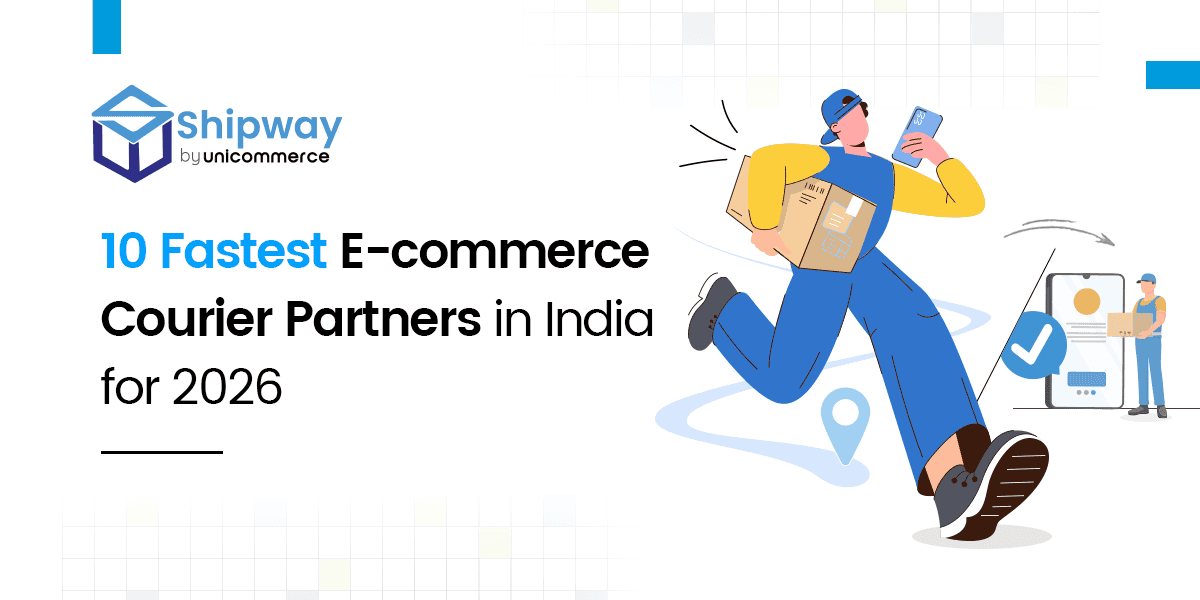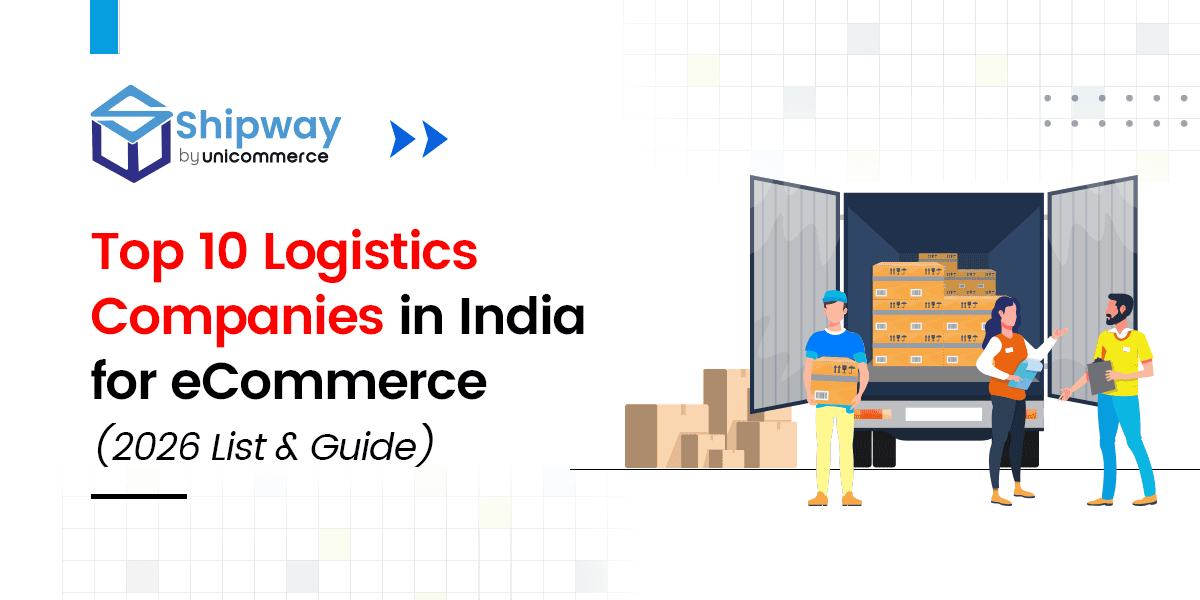The logistics ecosystem supporting Indian eCommerce businesses has evolved with new players offering software solutions to help online sellers fulfill, track, and return shipments. Among these platforms, Shiprocket and ClickPost are often compared by growing brands trying to improve their operations. Both platforms help eCommerce brands connect with courier partners, handle tracking, and process returns. But differences in setup, use case suitability, and business alignment often determine which one works better for different types of sellers.
This article compares Shiprocket vs ClickPost across various functions. It also highlights why Shipway may serve as a better shipping solution for small businesses aiming to reduce costs and improve performance without dealing with excessive processes or high technical requirements.
ClickPost vs Shiprocket vs Shipway: Detailed Comparison
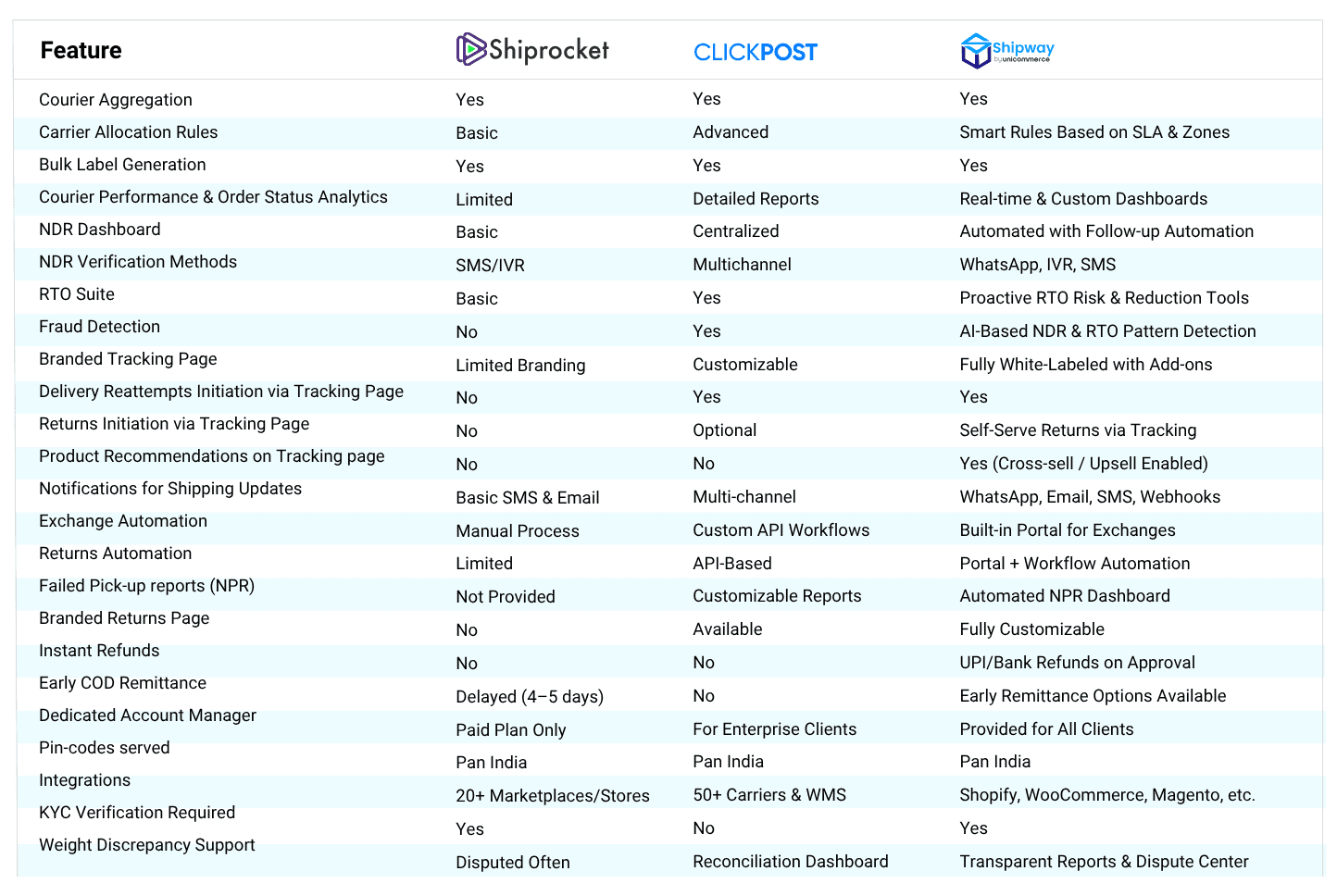
1. Company Background and Core Purpose
Shiprocket
Launched in 2017, Shiprocket was designed to serve direct-to-consumer sellers and SMEs. It helps these sellers fulfill orders using pre-integrated courier partners. The company operates a logistics aggregation model, offering access to multiple carriers through a single platform. Over the years, it has attracted interest from independent online sellers, Shopify merchants, and small marketplaces that want faster deliveries without signing individual carrier contracts.
ClickPost
ClickPost, launched earlier in 2015, offers shipping automation solutions more suited for larger eCommerce companies. It acts as a middleware layer, enabling brands to connect their warehouse management systems and order management systems with carriers through APIs. It is more of a tech-infrastructure partner for brands managing large volumes and needing custom workflows. ClickPost serves larger businesses, enterprises, and omnichannel brands needing more control and reporting.
Shipway
Shipway is a shipping aggregator and post-purchase experience platform that blends logistics automation with customer engagement. It is known for serving mid-sized sellers and brands scaling up to nationwide shipping. Shipway simplifies courier aggregation, tracking, returns, notifications, and shipping without requiring complex onboarding or heavy customization.
2. Courier Integrations
Shiprocket
Shiprocket comes pre-loaded with 25+ courier partners, including Delhivery, Blue Dart, Ekart, XpressBees, and others. Sellers get access to multiple service levels (standard, express, same-day) without having to set up individual accounts with each carrier. This works best for merchants that have low to moderate order volumes and who prefer an out-of-the-box shipping solution.
However, businesses that are looking to ship large volumes or negotiate custom rates might find it limiting. This is because Shiprocket often acts as a third-party account holder between the seller and the courier.
ClickPost
ClickPost connects brands to over 120+ carriers via APIs and supports custom courier configurations. It allows brands to onboard their own accounts with the carriers. This flexibility is especially helpful for large brands with contracts across multiple carriers, enabling them to define routing logic, fallback mechanisms, and performance-based allocation.
Setting up requires coordination with IT teams, and the platform is geared towards businesses with existing tech infrastructure.
Shipway
Shipway offers multi-courier access with quick setup. It has onboarded over 15 carriers and 100+ integrations. It allows businesses to either use their existing courier contracts or Shipway’s panel-based access. The platform suits sellers who want to diversify carrier options without relying on managed services.
3. Order Fulfillment & Shipping Process
Shiprocket
Shiprocket provides an end-to-end shipping panel where merchants can import orders (from Shopify, WooCommerce, Amazon, etc.), schedule pickups, generate labels, and track shipments. The user interface is clean and suited to non-technical users.
Its order processing includes NDR (non-delivery report) management and automated re-attempts. However, some users report concerns with label consistency and pickup failures due to coordination gaps between the panel and courier operations.
ClickPost
ClickPost doesn’t manage shipping directly but enables shipping through integrations. Brands continue using their warehouse tools or OMS, while ClickPost connects to carriers via APIs. It acts more as a connector and enabler than a shipping dashboard. Because of this, fulfillment accuracy and flexibility depend heavily on how well systems are connected at the brand’s end.
ClickPost is not designed to handle operational activities like booking pickups or printing labels natively.
Shipway
Shipway simplifies the shipping experience by offering a user dashboard for creating shipments, printing labels, tracking packages, and managing undelivered orders. Shipway suits sellers looking for something lighter than an ERP, with sufficient control but minimal dependencies on developer teams.
Its NDR management and smart courier allocation engine help sellers reduce delays and operational bottlenecks. Shipway also provides RTO reduction tools to improve delivery percentages.
4. Tracking and Notifications
Shiprocket
Shiprocket provides tracking across all supported couriers, with branded tracking pages and basic SMS/email alerts. The tracking is consolidated under Shiprocket’s own tracking system, which pulls updates from partner couriers.
While this is useful for small sellers, delays in update syncing or limited customization can be a constraint for D2C brands that want real-time engagement and branding.
ClickPost
ClickPost supports multi-courier tracking through APIs and allows real-time tracking sync for brands that want complete visibility. It allows the creation of tracking pages under the brand’s domain and supports extensive webhooks and data analytics.
It is mostly used by large brands that already have email or CRM tools and just want raw tracking data to plug in. This makes it useful for enterprise workflows, but not suitable for businesses lacking integration bandwidth.
Shipway
Shipway stands out in this segment. It offers real-time order tracking, customizable notification templates, branded tracking pages, and shipment performance dashboards. Merchants can set up communication rules for delays, returns, delivery attempts, and more.
The system is ready-to-use and doesn’t require additional technical effort, making it accessible for small and medium sellers aiming to improve the post-order experience.
5. Returns Management
Shiprocket
Shiprocket supports return pickups and refunds. The platform allows sellers to request returns through the dashboard or customer self-service portals. However, return rules and checks are not very flexible.
This basic structure works for sellers with occasional returns but lacks the custom flows needed by fashion or electronics brands with high RTO or quality check needs.
ClickPost
ClickPost allows full returns control via API – brands can design their own returns policies and trigger workflows using ClickPost connectors. For example, sellers can decide who pays for return shipping, whether to auto-approve or QC returns, and how the refund gets processed.
This level of control is valuable for established brands but comes with setup and maintenance costs.
Shipway
Shipway offers an automated return and exchange solution that can be activated instantly. It provides a branded return portal, auto-approvals, pickup scheduling, and refund updates. It balances automation with user-friendly design, helping sellers reduce return-related costs and improve satisfaction.
Shipway is ideal for brands scaling beyond marketplaces and looking to retain customers during returns.
6. Technical Support and Onboarding
Shiprocket
Shiprocket provides help through chat, call, and ticketing. Sellers can start shipping within hours using Shiprocket’s panel. But in case of delays, escalations can take time.
Technical flexibility is low; users have to follow platform workflows with limited options for API-based control or external integrations.
ClickPost
ClickPost offers account-level support for enterprise clients, including custom SLAs. It provides detailed technical documentation for integrations and assigns account managers to each client. Brands must manage their own developer resources for integration, testing, and production changes.
ClickPost works best for companies with dedicated logistics and engineering teams.
Shipway
Shipway provides dedicated account managers for all clients with over 100+ orders. Shipway also provides email, call and chat-based support for setup and ongoing issues. Most features are plug-and-play.
Shipway has a ticketing system and has also launched a support chatbot that easily helps you escalate issues and delayed orders. Overall, it provides better support than other ecommerce logistics solutions in the market.
7. Pricing Structure
Shiprocket
Shiprocket offers prepaid shipping plans, with rates depending on shipment weight, zone, and courier partner. Pricing is dynamic and can fluctuate, which makes budgeting harder for some sellers.
Higher plans come with benefits like priority support, NDR automation, and branded tracking.
ClickPost
ClickPost works on a quote-based pricing model. The cost depends on shipment volume, carriers integrated, and features activated. Minimum monthly commitments are usually required, making it feasible for companies with at least 10,000 orders/month.
It is not cost-effective for small-scale sellers or newly launched brands.
Shipway
Shipway provides clear pricing tiers based on monthly shipments. Plans are built for startups as well as mid-sized businesses, offering access to tracking, returns, and courier APIs without overcharging for unused features.
Its structure is better aligned with businesses that want to optimize without paying enterprise-grade retainers.
Shiprocket and ClickPost serve very different needs. Shiprocket is ideal for sellers who want a courier aggregator at a lower shipping cost without investing in development. ClickPost, on the other hand, allows you to integrate your courier API at your existing shipping rates and enables enterprise-grade control, but demands more tech alignment and internal capabilities.
For sellers who want an agile solution without complexity or vendor lock-ins, Shipway stands out as the smarter choice. It allows both courier aggregation and SaaS APIs, bringing together courier flexibility, tracking, returns, and post-order engagement under one system. It balances simplicity with power, making it well-suited for sellers growing across India and needing stability in their logistics workflows.
Shipway helps sellers focus more on scaling their business and less on resolving operational hiccups, all while keeping costs predictable.
Shipway: A Smarter Choice for Ecommerce Businesses
After comparing Shiprocket and ClickPost on key aspects like carrier integrations, dashboard simplicity, tracking accuracy, and pricing transparency, it’s clear that both serve different segments of eCommerce.
But there’s a third option that’s gaining traction among fast-scaling D2C brands and small to mid-sized sellers, Shipway.
Why Shipway Works Better for Growth-Driven Brands
- Returns Automation: Simplified returns and exchange management with automated setup, easy pick-up and integrations.
- Reliable NDR Control: Shipway’s smart panel helps you recover failed deliveries more effectively.
- Simple Setup: You’re not stuck in long onboarding loops. Shipway is designed for sellers who need things up and running quickly.
- WhatsApp-First Engagement: Communicate delivery updates directly on WhatsApp, increasing delivery rates and reducing WISMO tickets.
You may also like…
Top 10 India Delivery Company for E-commerce Businesses (2026)
Choosing the right India delivery company is crucial for eCommerce businesses looking to provide fast, reliable, and cost-effective shipping. The...
read more10 Fastest eCommerce Courier Partners in India for 2026
Finding a fast delivery service in India has become essential for every growing eCommerce brand. With customer expectations rising rapidly, online...
read moreTop 10 Logistics Companies in India for eCommerce (2026 List & Guide)
Introduction: Why Logistics Matters for India’s Growing eCommerce Sector The Indian eCommerce sector has witnessed tremendous growth, projected to...
read more